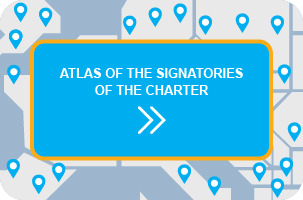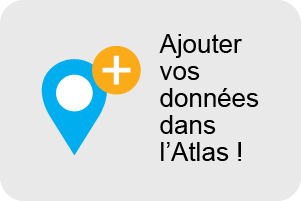International cooperation: Local authorities Charter for gender equality in Africa
19 July 2019
The online consultation has been launched on UCLG Africa’s website and an online platform.
The consultation is principally aimed at local governments in Africa, UCLG Africa and REFELA bodies, and national associations of local authorities in Africa. It also targets civil society organisations, including women’s rights associations, national organisations in Africa and Europe, and all those interested in promoting gender equality in Africa and wishing to be involved in the project. It aims to gather information, opinions, guidelines and advice to be taken into consideration when drafting the charter, with a view to producing a draft “Local Authorities Charter for Gender Equality in Africa” in a participatory and collaborative manner. The consultation will be open from 19 July 2019 through 30 September 2019.
We encourage you to reply to the questionnaire and to circulate it among your networks in order to reach the broadest possible audience. Our teams have prepared standard communications (brief paragraph and banners) to help its dissemination, do not hesitate to ask for them if necessary.
4 JULY 2019
First step for the “Local Authorities Charter for Gender Equality in Africa”
A group of gender equality experts and local elected representatives from Africa and Europe met on 4 July in Paris for the kick-off meeting of the “Local Authorities Charter for Gender Equality in Africa”. They were welcomed by Pierre Aidenbaum, Mayor of the 3rd District in Paris.
The contours and milestones of a multi-year cooperation between CEMR-PLATFORMA, UCLG Africa, the Network of Local Elected Women in Africa (REFELA) and UCLG were outlined during the meeting and a calendar of activities was adopted as a roadmap.
The group voted to adopt the name “Africa-Europe support Committee for the Charter” in order to reflect more accurately its mandate and function which is to accompany UCLG Africa/REFELA in the drafting process by organising forums for discussion and offering advice based on the experience with the European Charter for Equality.
Another working group, based in Africa and led by UCLG Africa and REFELA, will address the practical process of facilitating local debates about the content and form of the Charter as well as drawing up the text and a plan for its promotion among local authorities in Africa.
Achieving gender equality
Participants agreed that local governments in Africa and Europe shared common challenges and goals in terms of achieving gender equality. For this reason, common solutions — like this collaboration to draft an African Charter for local equality — should be pursued. The Chair of CEMR’s Standing Committee for Equality, Emil Broberg, emphasised that “CEMR wishes to strengthen its cooperation with UCLG Africa and the Network of Local Elected Women in Africa (REFELA) to respond to shared global challenges and achieve Sustainable Development Goal 5. To have an effective charter, it is necessary to involve numerous actors and numerous means – in particular on the plurality of the actors who implement it.”
Elise Henriette Mboula Epse Essame, Vice-President of REFELA (Central Africa), Mayor of Nkongsamba 3-Cameroon (Cameroon) informed the group that “REFELA and UCLG Africa will be able to benefit from the European experience on this subject to advance faster. Africa is complex; every local woman elected from Africa should be included in this charter. We will need a document that is not too long but where every word will have its place, with all its weight. This will help move forward.”
Gunilla Westerberg-Dupuy, Deputy Mayor of Suresnes and President of the AFCCRE Gender Equality Committee also highlighted the importance of taking time to get the wording right in the Charter text: “At the time, when the Charter was created at the European level, everything had to be done from scratch. This was done in communities with discussions that centred around the vocabulary. The document must be anchored and shared by the people who create it.”
Mainstreaming the Charter
During the meeting, ideas were also exchanged on how to garner additional support for the project and to mainstream the Charter project into the work of UCLG Africa more broadly. For example, men within UCLG Africa’s leadership should be encouraged to participate in the project and women’s rights organisations in the region could be consulted and involved in the process.
The next major step in the drafting process will be an online consultation which aims to collect input from all relevant stakeholders in the regions of Africa (elected representatives, civil society, etc.). The consultation will be open from July to September.
The results will be compiled for analysis and will form the basis for the first outline of the Charter which will subsequently be presented in a session at the UCLG World Congress in Durban this November. To capitalise on the presence of many elected representatives from Africa and Europe in Durban, an informal working meeting of the Africa-Europe support Committee for the Charter may be organised on the side-lines of the World Congress.
1 JULY 2019
Outcome of the 8th Africities Summit in Marrakech (Morocco) November 2018: the first meeting of the Drafting Committee for the “Local authorities Charter for gender equality in Africa” is meeting in Paris on 4 July 2019.
This gathering of technical experts and elected representatives from Europe and Africa, taking place at the Town Hall of Paris 3rd district, is part of the implementation of the “Africa-Europe Marrakesh Pact for Local Equality” that was adopted and signed at the 8th edition of the Africities summit last November. The pact is the fruit of an ongoing cooperation between CEMR-PLATFORMA, UCLG Africa, the Network of Local Elected Women in Africa (REFELA) and UCLG.
The Pact aims to produce a “Local Authorities Charter for Gender Equality in Africa”, in line with the gender equality commitments made at the level of the African continent and at the international level. The Paris meeting of the Drafting Committee is one of two activities planned by CEMR-PLATFORMA to strengthen cooperation between the European and African networks of elected women, facilitate mutual learning and share the experience of CEMR and the European elected representatives in drafting and adopting the European Charter for the Equality of Women and Men in Local Life.
27 NOVEMBER 2018
Signature of the Africa-Europe Marrakesh Pact for local equality
A draft “Africa-Europe Pact for local equality” was signed at the 8th Africities Summit in Marrakech (Morocco) last week by Frédéric Vallier, Emilia Saiz and Jean-Pierre Elong Mbassi and and Célestine Ketcha Courtes, respectively Secretary Generals of the Council of European Municipalities and Regions (CEMR), United Cities and Local Governments of Africa (UCLG Africa), and United Cities and Local Governments (UCLG) and president of the Réseau des Femmes élues locales d’Afrique (REFELA).The final Pact will be approved during a ceremony at the UCLG Congress in 2019.
One of the sessions of the 8th edition of the Africities Summit (20 to 24 November) was dedicated to the Gender Equality and social inclusion strategy for a just transition of Africa, organised by CEMR, UCLG Africa, Réseau des Femmes Elues Locales d’Afrique (REFELA) and UCLG.
The Pact is a commitment from local Africa and local Europe to work together to advance gender equality and empower women and girls.
In this draft Pact, all concerned parties recognise their active engagement in the processes of promoting gender equality and the empowerment of women and girls. Signatories also, stress their support to the capacity building of local and regional governments in the implementation of this Pact.
The mentioned European, African and global local and regional government associations commit to contribute to the achievement of the 2030 Agenda and SDG 5, notably through drafting the African Charter for Gender Equality in Cities and Local Governments, which will build on the principles contained in the New Urban Agenda, aiming at strong local governments and delivering inclusive basic services and sustainable societies.
The African Charter will be nourished by CEMR experience and the European Charter for the Equality of Women and Men in Local Life.
A drafting committee will be established (composed by elected representatives, already members of Standing Committees on Gender Equality from the African and European sections) which will be dedicated to the development of an African Charter.













